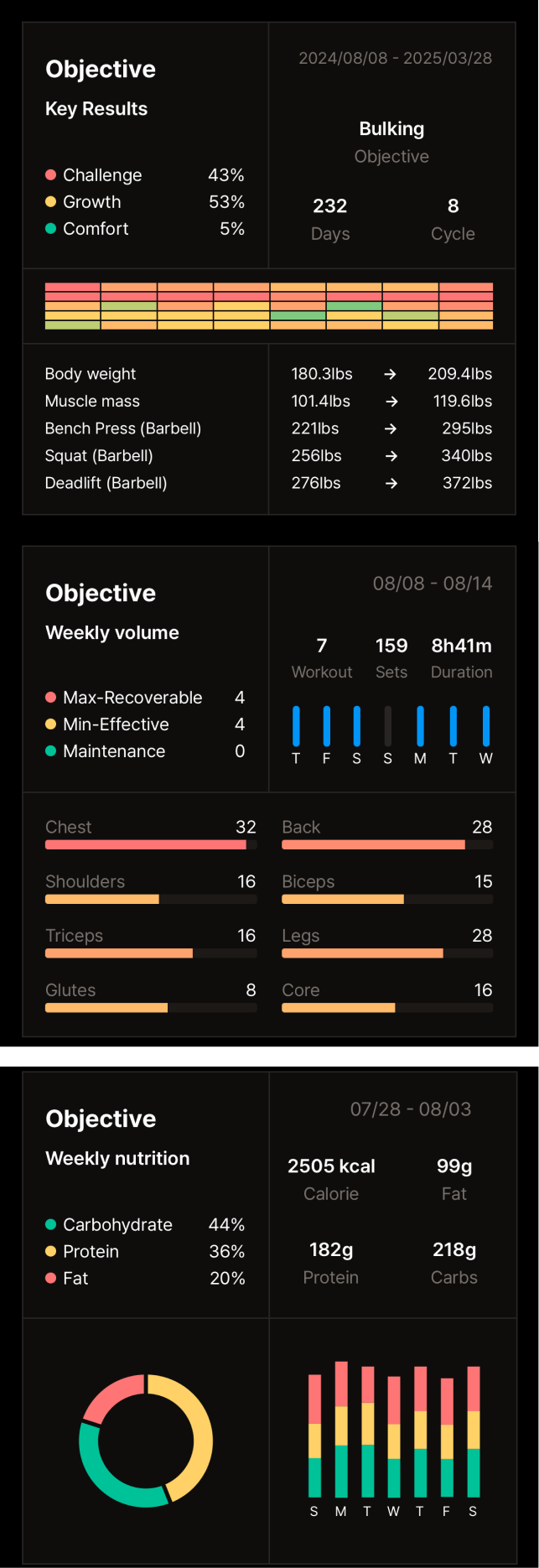Best High-Protein Foods for Muscle Growth
Ever wondered what fuels the muscles of athletes and bodybuilders? Dietary protein is a crucial element for muscle growth, essential for fitness enthusiasts at all levels. This article explores the best high-protein foods for muscle growth, making it relatable and practical for readers looking to enhance their fitness journey. A balanced diet is paramount in achieving fitness goals, so let's delve into the world of top protein sources.
Section 1: Understanding Protein and Muscle Growth
What is Protein?
Protein is a fundamental building block of the human body. Think of it like bricks in a wall – proteins are the bricks that make up your muscles, organs, skin, and even your hair. These "bricks" are made up of smaller units called amino acids. There are 20 different types of amino acids, nine of which are essential, meaning your body cannot produce them and must obtain them through diet.
How Protein Supports Muscle Growth
Muscle protein synthesis is the process where your body uses protein to build and repair muscle tissue. When you exercise, you create tiny microtears in your muscles. Protein provides the necessary amino acids to repair these microtears, making the muscles stronger and larger. Think of Olympic weightlifter Hidilyn Diaz, whose rigorous training and high-protein diet have contributed to her incredible strength and muscle development. Protein isn’t just for building muscle; it’s also vital for recovery after intense workouts.

Section 2: Top Animal-Based High-Protein Foods
Lean Meats
Lean meats like chicken, turkey, and lean beef are excellent protein sources. Chicken breast is a popular choice due to its low fat and high protein content. Grilling or baking are ideal cooking methods to retain protein value. Try a simple grilled chicken salad with mixed greens and a light vinaigrette. Turkey breast is another lean option, perfect for sandwiches or ground turkey chili. Lean beef, such as sirloin or tenderloin, provides essential nutrients like iron and vitamin B12 in addition to protein. A flavorful beef stir-fry with plenty of vegetables is a quick and healthy meal.

Fish and Seafood
Fish and seafood offer high-quality protein and essential omega-3 fatty acids. Salmon, rich in omega-3s, supports heart health and reduces inflammation. Baked salmon with roasted vegetables makes a nutritious and delicious meal. Tuna is another excellent choice, packed with protein and easy to add to salads or sandwiches. Omega-3s offer numerous health benefits beyond muscle growth, including improved brain function and reduced risk of chronic diseases like heart disease.

Dairy Products
Dairy products like milk, yogurt, and cheese contribute significantly to protein intake. Milk provides a good balance of protein and carbohydrates, making it a suitable post-workout recovery drink. Greek yogurt is high in protein and can be enjoyed with fruit and granola. Choose low-fat or fat-free dairy options to minimize saturated fat intake. Cheese, while a good source of protein and calcium, should be consumed in moderation due to its sodium and saturated fat content.

Section 3: Top Plant-Based High-Protein Foods
Legumes and Beans
Legumes and beans are excellent plant-based protein sources. Beans, lentils, and chickpeas are versatile and affordable options. They can be added to soups, stews, salads, or enjoyed as a side dish.
| Legume/Bean | Protein per 100g (approx.) | |---|---| | Kidney Beans | 9g | | Lentils | 9g | | Chickpeas | 7g |

Nuts and Seeds
Nuts and seeds are packed with protein, healthy fats, and fiber. Almonds are a great snack and can be added to yogurt or oatmeal. Chia seeds are a good source of protein and offer a complete amino acid profile. Sprinkle them on salads or add them to smoothies. Other protein-rich nuts and seeds include walnuts, pumpkin seeds, and sunflower seeds. Incorporating a handful of nuts or seeds daily can contribute to your protein intake.

Soy Products
Soy products like tofu, tempeh, and edamame are valuable additions to vegetarian and vegan diets. Tofu is versatile and can be used in stir-fries, scrambles, or added to soups. Tempeh, made from fermented soybeans, has a nutty flavor and firm texture. Edamame, young soybeans in the pod, is a nutritious snack or side dish. While soy products contain all nine essential amino acids, they are generally considered incomplete proteins because the levels of methionine are lower compared to animal-based proteins.

Section 4: Creating a High-Protein Diet Plan
Balancing Macronutrients
Balancing proteins, fats, and carbohydrates is essential for optimal muscle growth and overall health. Macronutrients are the nutrients your body needs in large amounts to provide energy and support various bodily functions.

A general guideline for muscle growth is a macronutrient ratio of:
- Protein: 10-35% of total calories
- Carbohydrates: 45-65% of total calories
- Fats: 20-35% of total calories
Sample Meal Plan
Here's a sample high-protein meal plan:
- Breakfast: Scrambled eggs with spinach and whole-wheat toast
- Lunch: Grilled chicken salad with mixed greens and a light vinaigrette
- Dinner: Baked salmon with roasted vegetables
- Snack: Greek yogurt with berries and almonds

Common Mistakes to Avoid
- Relying solely on protein supplements: While supplements can be helpful, whole foods should be the foundation of your diet.
- Neglecting other nutrients: Focus on a balanced diet rich in fruits, vegetables, and whole grains for overall health.
- Consuming excessive protein: Your body can only utilize a certain amount of protein at a time. Excessive protein intake may strain the kidneys and liver.
Section 5: Supplementary Protein Sources
Whey and Casein Protein
Whey and casein protein, both derived from milk, are popular supplements often used for muscle growth. Whey protein is rapidly absorbed, making it a common choice for post-workout recovery. Casein protein is digested more slowly, providing a sustained release of amino acids.

Plant-Based Protein Powders
Plant-based protein powders, such as pea, brown rice, and soy protein, are alternatives for vegetarians and vegans. They offer a good source of protein and can be easily blended into smoothies or shakes.

Conclusion
High-protein foods are important for muscle growth and recovery. By incorporating a variety of animal-based and plant-based protein sources into your diet, you can support your fitness journey. Experiment with different protein sources and find what works best for your body and dietary preferences. Remember, a balanced diet, combined with regular exercise, is key to achieving your fitness goals. Consider exploring further topics like advanced meal planning or the role of micronutrients in muscle growth and overall health. Improve your fitness outcomes and overall well-being through informed dietary choices.

